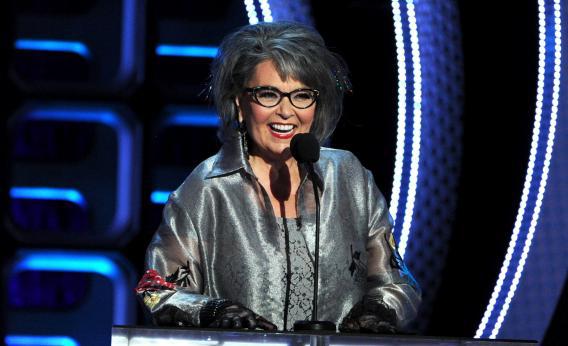Once upon a time, word that Roseanne Barr might be coming back to television would have been cause for celebration on my couch. But the news that NBC is considering signing Barr and her co-creator Linda Wallem to a deal is depressing, and not just because the reported terms of the deal (in which the network picks up the show only if it meets a certain ratings threshold and then makes episodes under extremely tight time and budget guidelines) often end up producing pretty mediocre television. I absolutely respect Barr’s contributions to television and to pop culture’s conversations about class and feminism. But increasingly it seems like those issues could use a more eloquent and less self-absorbed mass-media spokeswoman. There’s no denying the greatness of Roseanne, but what about Barr’s current sensibility is so appealing to NBC, other than the hope that the network will grab some headlines when she inevitably does something the press deems outrageous? Barr’s most recent TV effort was a fabulously self-involved reality show called Roseanne’s Nuts about her macadamia farm in Hawaii that was canceled after its ratings fell to around 700,000 viewers. Her next main enterprise was running for president, first as a Green Party candidate and then as the nominee of the Peace and Freedom Party. But mostly she seems to be hanging out on Twitter and getting into fights with bloggers such as Jezebel’s Lindy West, who she’s accused of censorship for critiquing the construction of rape jokes or suggesting that it might have been a good thing for Trayvon Martin to be carrying a gun when he ran into George Zimmerman. All of this is a good indication that Barr is adept at drawing sporadic attention to herself, but none of it is proof that she has a specific and compelling comedic vision that can support 100 hours of watchable television.
The question of whether Barr actually has anything to say raises a larger issue. It makes sense that NBC would want to recapture the success of Roseanne, which was the most popular television show in the country in its second season. But given how much the television ecosystem has changed in the 16 years since Roseanne went off the air—including the increasing belief that, like it or not, audiences want to watch characters whose lifestyles they can aspire to, rather than relate to directly—it seems like a bit of a stretch to assume that Barr can still draw like she did in 1988 and that the network can just turn back the clock. I’m all for NBC creating a show (or shows) that explore working-class families and feminism, but if Barr’s the only person who network TV sees as able to tackle these subjects, that’s very bad news for young female writers.
The issues Roseanne brought up when her show premiered 25 years ago are just as urgent now as they were then, particularly given the erosion of manufacturing jobs and increasing income inequality. But if NBC really wants to tell stories about women and work, the network should invest in comediennes of the future, rather than turning wishfully to the past.
